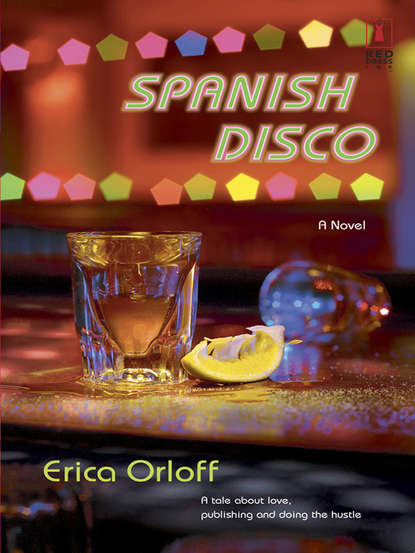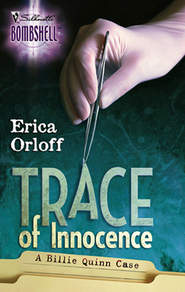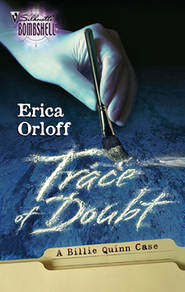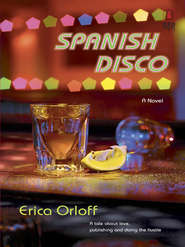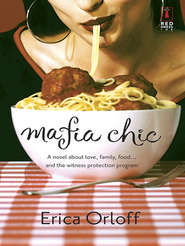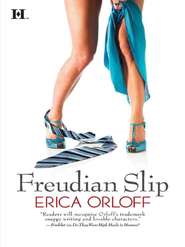По всем вопросам обращайтесь на: info@litportal.ru
(©) 2003-2024.
✖
Spanish Disco
Автор
Год написания книги
2019
Настройки чтения
Размер шрифта
Высота строк
Поля
“You know, Lou, that’s a little more information than I need to know.”
“Christ, I get to hear about every time you have your period. We brace for your PMS like it’s a hurricane crossing the Caribbean and heading dead-on towards Boca. You can hear about how I sit.”
I smiled to myself as I drove. Think of Lou and Roland Riggs—was I talking to myself already?—not Pearton. I flipped on my stereo, popped in my Elvis Costello CD and steered toward Alligator Alley while listening to “Indoor Fireworks.”
Alligator Alley is a lonesome, flat expanse of highway stretching from one coast of Florida to the other. As far as the eye can see in any direction is Everglades. Reeds and swamp, the occasional scruffy tree. I presume alligators. And dead bodies. Mafia hits take place in the ’glades. At least that’s what Joe “Boom-Boom” Grasso told me. We published his book about life in the Gambino crime family.
Empty mile after mile of swamp ate at my nerves. I gave up and allowed Michael to invade my thoughts. The mark of a good editor is an anal-retentive mind that never forgets a detail. With my typical obsessiveness, I replayed every conversation I’d had with Michael over the last five years.
So much of what passed between us was banter at first. Indoor fireworks. But somehow, over the years, we had progressed to intimate all-nighters about God (he tried to persuade me to give up my agnosticism), writing, dreams, Freud (we both concurred—sometimes a cigar is just a cigar), and even my father and mother. I forced his face from my mind by singing along with Elvis. Every time I tried too hard to make Michael vanish, he returned to my thoughts, his enigmatic smile staring up from his jacket photo. I felt my stomach tighten slightly.
Two hours after my departure from Boca, my banana-mobile and I emerged from the ’glades and proceeded toward the island. If you’re into the beach and the sun and palm trees and sand—which I am not—then Sanibel is indeed a paradise. I hadn’t yet spoken to Roland Riggs, but he had given Lou explicit directions to his house. For a New Yorker, any directions that start, “Make a right onto Periwinkle Way” bodes ill.
Driving along Periwinkle, one lane in either direction, I cursed the blue-haired in front of me, steering her Caprice with all the agility and speed of an Indy racer on thorazine. At this pace, I took in Sanibel Island. Dairy Queen. A pizza place. A real estate agency. A shell shop. Not a coffeehouse in sight. No bar I’d consider calling my home away from home. I’d never survive a month.
I followed the directions, winding my way to the water, finally arriving at an immense wrought-iron gate. I couldn’t even make out a house. Grasses and dune-like mounds of sand blocked my view. Climbing out of my car, I approached an intercom mounted on the gate. I pressed a button and waited. I pressed again.
“Hello?” A female voice answered.
“Hello. This is Cassie Hayes. Is this the home of Roland Riggs?”
“Sí. Hold on.”
The gate buzzed and swung open. I got back in my car and drove through. The driveway—if you could call it that—was gravel and sand and meandered its way to an immense house that stood on top of a dune but was perched on stilts like a heron.
I parked at another iron-filigree gate that led into a garden. Leaving everything in my car, I pushed on the gate, surprised at how nervous I felt. I was coming face-to-face with one of the literary giants of the century. Barbara Walters would have coldcocked Katie Couric and Diane Sawyer for this moment.
5
A bove the surf noise of the Gulf of Mexico rippling toward shore, I heard a bubbling, gurgling sound. Glancing around the garden, I spotted a fish pond filled with koi. Flashes of gold-and-white-speckled fish lazily swam, flicks of their tails catching beams of sun. A cat perched on the stone ledge surrounding the pond. All white, with green eyes, it licked its paws and stared at me.
“Hey cat,” I said, offering it a nod. Then I noticed at least ten other cats sprawled throughout the garden. Orchids hung from tree branches—white and hot pink and purple, all in full bloom and thriving. Other flowers and bushes exploded with a blend of scents—citrus and jasmine. Fruit trees and avocado trees grew, limes and oranges and nectarines ripe for the plucking. Azaleas and gardenias grew—not an easy feat in Florida. Cedar benches and a glider nestled near particularly restful spots. Someone clearly loved gardening. It was a monumental task to coax these flowers to grow in the brutal Florida sun…and the sandy soil. Riggs must have trucked in a farm-full of real soil.
I approached the house, for the first time really noticing its size. Made of glass and stone and wood, it offered views of the water on three sides. A frosted glass-and-wood door, surrounded by hanging orchids, stood atop a narrow slate and rock staircase. I climbed the stairs, rang the bell, and waited.
Finally, the door swung open, and there stood America’s greatest living author. Roland Riggs was white-haired and tall. I’d forgotten no one had seen a picture of him since 1977. He wore round silver spectacles that accentuated his clear, blue eyes. His skin was tanned but wrinkled and he smiled, revealing pure white teeth and a pair of craggy dimples. He looked like a vision of America’s perfect grandfather.
“Cassie Hayes.” He extended a liver-spotted, wrinkly hand and firmly shook mine.
“Yes, sir.”
“Call me Roland…where’s your stuff?” He craned his neck.
“In my car, down by the garden gate.”
“We’ll get it later. How’s lunch sound? Maria has cooked a plate of enchiladas.”
“Terrific.”
“Splendid.” He turned and led me into his house. He had a slight shuffle to his gait, and his shoulders stooped a bit. His white hair stood up on its ends, a bit of an Einstein-do. I couldn’t help but notice he was barefoot. He was wearing a pookah shell necklace. Checkered boxer shorts peeked beneath a pair of crisply ironed tan shorts. The Bee Gees were playing on his stereo. As “Staying Alive” pulsed in the background, I watched him sway back and forth a time or two, involuntarily I think, as people do when lost in a song. He had terrible rhythm. As I followed the man whose words had changed the way America talked about war, I smiled to myself. He wasn’t like any grandfather I’d ever known.
Stepping inside Roland Riggs’s kitchen was like walking into something out of a Creature-Feature show. Plants didn’t just grow in the windowsill, where sunlight streamed in through triple panes of glass. They grew everywhere. In fact, I wondered if a kitchen counter even existed beneath all the plants. It was like The Day of the Trifids. Only no Trifids, just plants.
“What are all these things?”
“Potato bonsai.”
“I beg your pardon?”
“Potato bonsai.”
“I’ve never heard of that.”
“Most people haven’t. It’s an art form. When you were a little girl, did you ever try to grow a potato? Stick one in water with the toothpicks and all that?”
I tried to think back to my childhood. My mother would never have touched a food item that needed cooking. Our housekeeper believed the kitchen was her own territory and threatened death to all who did not respect her domain. My father? He helped me write a 130-page paper on misogyny in literature for my fifth-grade end-of-year English project. Growing potatoes and other simple child pleasures were not in his repertoire. But I was meeting the famous Roland Riggs for the first time. So I did what I do so well with all my authors.
“Of course,” I lied.
“Well, Maria takes it one step further. She tends to these little potatoes here until she can make bonsai out of them. And then she tends to those. See, over there?”
Sure enough, little bonsai plants sat on a corner of the counter in beautiful glazed Japanese pots. Of course, most bonsai plants I have ever seen—which admittedly is not many—created little scenes of Japanese men fishing or sitting on a bench. Or perhaps no scene at all, just the bonsai curving gracefully. These bonsai each had a unique scene of tiny troll dolls—nude—sitting on high chairs or hugging each other, with their trademark Don King fright hairdos sticking straight up in an array of colors from green and yellow to a blinding hot pink.
“This is an art form I have never seen before,” I commented. Truthfully.
“She’s quite amazing. And now…” He smiled and led me to a beautiful oak-plank table in the dining room. “You get to partake of her other art form. Cooking. Maria is from Mexico, and she is unparalleled in her cooking skills. More evidence of her artistry,” he said, with a flourish of his hand.
Ten minutes later, I was tasting the enchiladas. My mouth was burning. Maria, his housekeeper, apparently cooked with a bottle of hot sauce in her belt like a Mexican gunslinger. Only she was slinging fire.
“You like them?” Roland asked from across the dining-room table, polished to a sheen. We could have fit sixteen around it.
“Like them?” My eyes watered, and my voice was hoarse with tears. “I need cold liquid. Ice.”
I hadn’t yet seen Maria. I assumed she was cleaning in some other part of the house. Perhaps she was trying to kill me. And Roland Riggs.
Genially, he rose and walked over to the refrigerator, one of those blend-into-the-cabinetry custom-made types. Simple Simon apparently provided quite an income to Riggs.
“Beer? Cold soda? Ice water? Juice?”
The moment of truth. Let on that I was a coffee-slugging, tequila-loving hedonist? Well, there was no way I was going to hide all my bad habits for a month.
“Beer.”
He came over to the table with two Coronas and two lime wedges.
“How’s Lou?”
“Good. He sends his best. I actually need to call him and set up my laptop and e-mail if that’s okay.”





